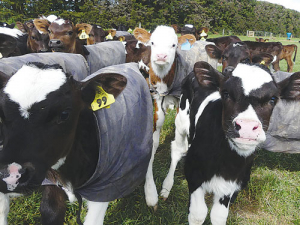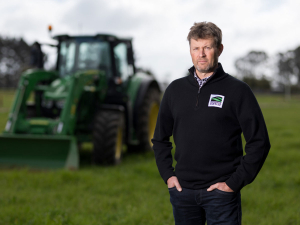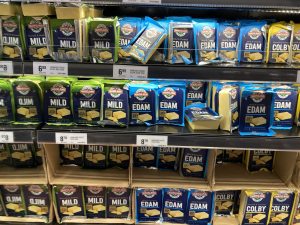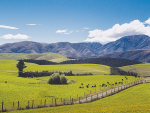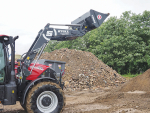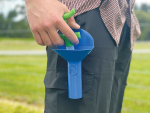With only two to three weeks left in a successful calving season, they are proud to point out several calves already literally earmarked for donation to various charities, including the annual IHC Calf and Rural fundraising auction and their local primary school.
Now settled into their sixth farm in eight years, Siobhan says they have donated from every one.
This year’s five donation calves, worth about $500 each at weaning, represent a gift to their community of $2500 plus the cost and effort of rearing them, she says.
She didn’t know before they went dairying how “every farmer” donated a calf to IHC every year, and how livestock donations to local schools was “really common – part of the way rural communities self-fund”.
IHC Calf and Rural Scheme coordinator Lynda Young-Kennedy said she expects to have 3145 calves for sale this year from total pledges of 4145, including live calves, “virtual calves” and pledges of direct donations matching the auction prices.
Eighteen auctions will be run nationwide, between Paeroa on October 20 and Balclutha in late January.
Last year the effort raised $1.4 million from about 4200 pledges.
“They’re generous, aren’t they?” said Young-Kennedy.
“More often than not they do that sort of donation, one for us and one for the rugby club or the school.”
The IHC scheme started in 1984.
“We have some farmers who’ve been with us from when it began; that’s a long time donating.
“Then their families step up and take over as well.”
She paid tribute to PGG Wrightson which runs the auctions, the canvassers who visit the farms to record the pledges, at least 100 transporters who carry calves free or at reduced rates, community groups and other volunteers.
Meanwhile, Siobhan O’Malley said the busiest time of calving is over but the last third “seem to take forever,” and she expected calving to continue into the start of October.
“This is the time of year you make your money, so you work your hardest and it’s important you get it right; it’s part of the dairy farming deal.”
By using Hereford straws over the heard they have managed to minimise the bobby calves “quite well”.
“We’re selling our Friesian bull calves and Hereford bull calves near $100 and the bobby calves at $25-30 so that’ll probably be good for the pocket and less wastage, good for the industry.”
The O’Malleys were earlier named the national Share Farmers of the Year 2017 after only their second season milking their own herd.
On the day Dairy News visited, the farm was being buffeted by a classic Canterbury nor’wester, but Siobahn welcomed it after a wet winter.
“It’s intense but man, it’s soggy, so we need these raging nor’westers to dry out the pastures.”

